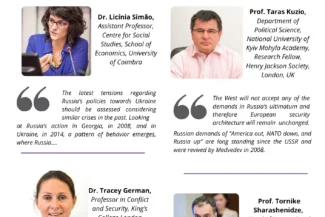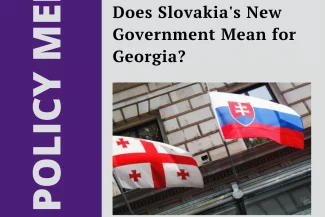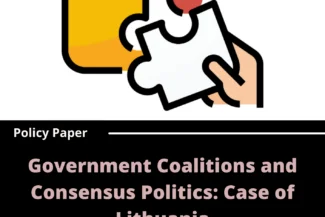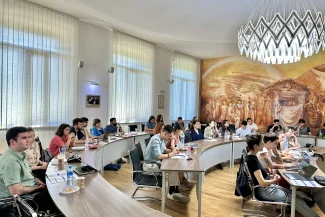Levan Kakhishvili*
On October 1, Catalonians voted in a referendum to become independent from Spain. The vote was deemed illegal by the Spanish central government in Madrid. Even though police interfered in the voting process and left about 900 people injured, it has been reported that over 2.2 million people voted in the referendum.The put turnout at a relatively low 42%, perhaps because the unionists were highly likely to have boycotted the referendum. According to Catalonia’s regional government, almost 90% of the voters supported independence. Consequently the Catalonian President Carles Puigdemont stated that: “we are going to declare independence 48 hours after all the official results have been counted.” It must be emphasized, however, that the Catalonian referendum has not been supported by any foreign state and Brussels has not only condemned the referendum but also defended the use of “proportional force” by Madrid.
This was not the first time Catalonia voted for independence. In 2014, roughly 2.4 million Catalonians participated in a non-binding plebiscite, with 75% of them voting for independence. Although this caused tensions in Spain, the major difference between then and now is not that more Catalonians want independence or want it more intensively. Rather, it is the new reaction of the central government that completely changes the overall picture. Instead of simply declaring Sunday’s referendum unconstitutional, Madrid tried to intervene with violence. If before Sunday, Catalonia was a region within a democratic country in which problems can be solved through negotiation, after October 1, Catalonia came out as an oppressed nation deprived of the right to self-determination. The events of October 1 gave rise to much greater sympathy among neutral observers towards Barcelona than towards Madrid.
Why do Catalonians want Independence?
There is a widespread assumption that Catalonians want “independence”, and most commentators are trying to explain why. The problem is that Catalonians do not, or at least did not want, independence. It is still unclear even after the October 1 referendum whether they want independence from Spain. The turnout was low and it is highly likely that those Catalonians who oppose independence did not vote anyway so the results of the referendum are not a clear indicator of public opinion.
What Catalonians do want is more decentralization, which they got in 2006 when a new law providing enhanced political and financial independence was approved by the Spanish government. It was then backed by a regional referendum in Catalonia. Two years later, only 15% of Catalonians supported the independence in a poll conducted by the Catalonian public polling agency. The situation deteriorated when this new status was challenged in Spain’s constitutional court, which ruled in 2010 that the law was unconstitutional. Consequently, in the 2015 regional elections in Catalonia, pro-independence parties received 47.8% of votes and the new Catalonian government announced a referendum without the consent of Madrid.
The reason why Catalonians want to be more independent in financial and political matters is that Catalonia is a wealthy region that contributes more to the central budget than it receives. Catalonia’s population makes up only 16% of Spain’s total but generates 20% of the country’s GDP. If Catalonia were an independent country its economy would be roughly the size of that of Denmark. Consequently, Catalonia’s independence, although a complicated process, would perhaps be feasible.
However, regional nationalism is not only driven by the economic disparities between Barcelona and the rest of Spain. Throughout past years the regional government has repeatedly instrumentalized nationalist mobilization of public opinion for political purposes, e.g. to shift the public’s attention from corruption scandals. Yet it is the way Madrid engages with Barcelona that determines the flow of the events rather than anything else. Even King Felipe VI, who is also the Prince of Barcelona and is supposed to symbolize the unity of the whole nation, failed to do what many believe the Queen Elizabeth II achieved in Scotland with her speech the just before the Scottish referendum. Consequently, the King’s speech was “inadequate”: instead of speaking in both languages and calling for dialogue and negotiations, he took a side of the central government.
Lessons for Georgia
The Catalonian referendum is often compared to other referenda in Scotland, Crimea, and, more recently, Kurdistan. However, such comparisons are false. Spain is a democratic country – Iraq is not. Kurds are oppressed. Catalonians are not (although there might be split opinions about this after October 1). In Crimea, armed forces facilitated the referendum while in Catalonia the police tried to prevent people from voting. Besides, in the case of Catalonia there is no external power that aggressively supports secession, while in Crimea Russian interest and involvement was painfully obvious. In Scotland, the referendum was agreed and negotiated between the center and the periphery. In Catalonia, it was not. Therefore, any such comparisons and parallels are irrelevant.
Lessons from the Catalonian experience, however, are still relevant for other countries facing issues with separatism. Georgia, for example, could learn an important lesson from Spain. The more the center resists regional mobilisation for more decentralization, the more the situation is exacerbated. In some cases decentralization and wider autonomy is often a solution for preventing conflicts. It deescalates the situation, not the other way around.
Georgia has made this mistake with its breakaway regions in Abkhazia and South Ossetia when the country’s first democratically-elected government abolished South Ossetian autonomy and was reluctant to grant wider autonomy to Abkhazia. In both cases, violence and rejection of cooperation from all sides led to declarations of independence by breakaway regions – immediately in the former case and, after a few years of failed negotiations, in the latter case.
Therefore, it is important to learn the difference between demanding independence and demanding more decentralization. The problem, though, is that Tbilisi still has not yet learned this lesson from its own experience. This means that whenever there is an unwelcome incident in the minority-populated regions of South Georgia, the initial and sometimes only reaction from the central government is to mobilize police forces. The incidents such as the Minaret conflict in the village of Chela or the recent clashes over the church in Kumurdo are examples to consider. The use of police forces to suppress a conflict does not prevent the conflict from escalating. The latter cannot be achieved by the use of force. Conflict can only be resolved through dialogue and mutual understanding.
More often than not, the rights and wellbeing of minorities in Georgia are often viewed through the prism of security. There is a great deal of uncertainty and distrust among ethnic groups in Georgia. This situation leads to suspicion about the intentions of the “other”: minorities fear losing their cultural identity through assimilation, while the majority fears the more rights the minorities enjoy, the more rights they will demand. This latter logic results in governing ethnic relations through security agencies rather than through agencies devoted to rights protection.
The Road to Radicalism
What the Catalonian experience shows is that when citizens are dissatisfied, they tend to raise their voice to express their needs. If those expressions are not met or are ridiculed or prepressed, the people will likely become more radical. It is easy to mobilize public opinion around nationalist sentiments. There will always be opportunists seeking to manipulate dissatisfied citizens for the purpose of gaining political power. Therefore, it is essential that the central government does not provide incentives for its citizens to take radical action.
Spain seems to be spiralling down towards increasing antagonism on the part of both parties. The only solution to the problem is a rational one free from emotional sentiments – Spain needs to achieve consensus through compromise. Georgia should learn the same lesson regarding its numerous national minorities.
*Levan Kakhishvili, GIP policy analyst
**This publication was produced with the support of the Open Society Georgia Foundation (OSGF). The views and opinions expressed in this article are the author’s alone and do not necessarily reflect the views of the Georgian Institute of Politics or the Open Society Georgia Foundation.








